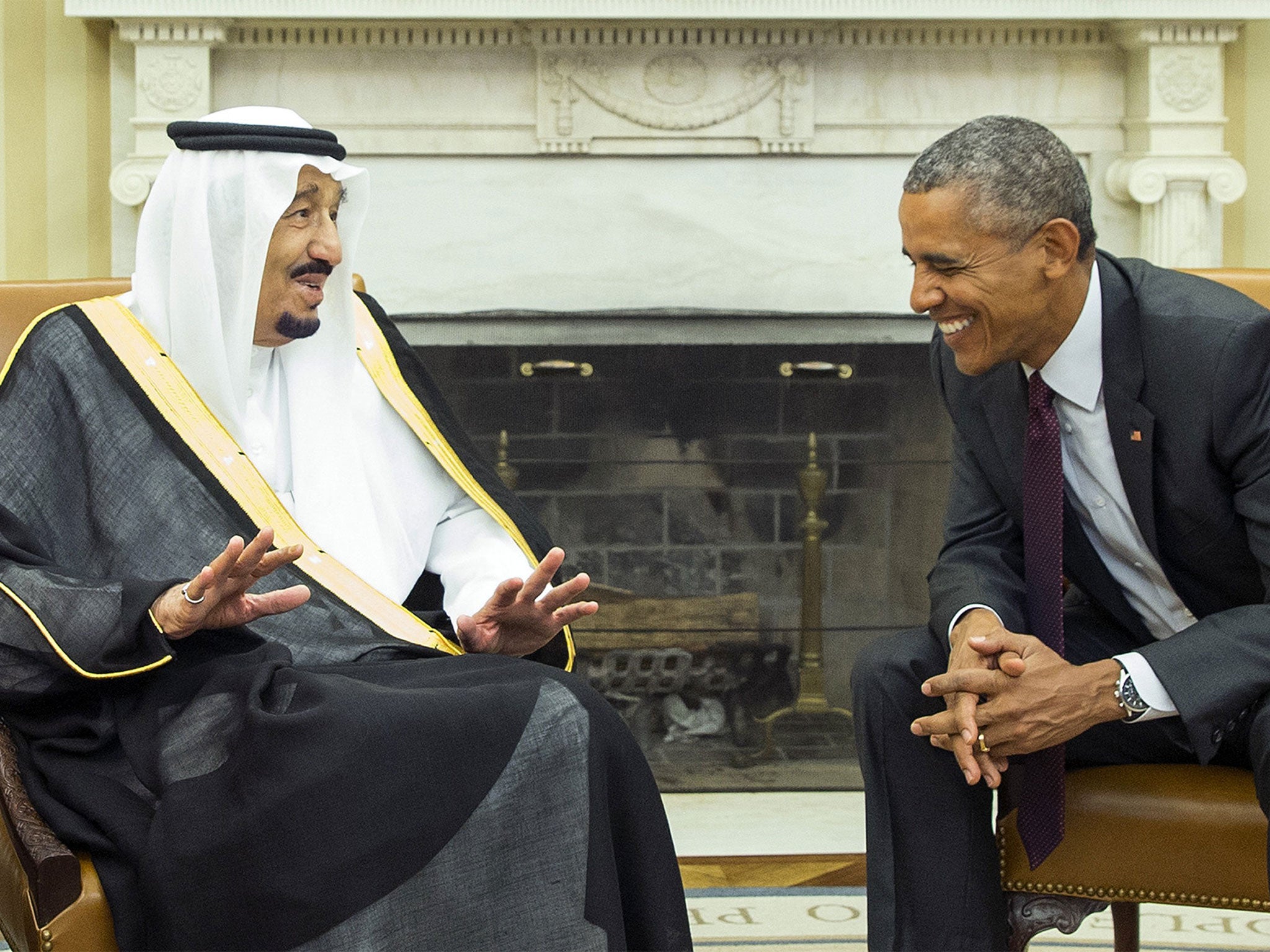Iran nuclear deal: Saudi Arabia 'satisfied' with Obama's reassurances that deal will bring stability to region
The president and King Salman also agreed on the need for a functioning government in Yemen and to address the food and shelter crisis there

Your support helps us to tell the story
From reproductive rights to climate change to Big Tech, The Independent is on the ground when the story is developing. Whether it's investigating the financials of Elon Musk's pro-Trump PAC or producing our latest documentary, 'The A Word', which shines a light on the American women fighting for reproductive rights, we know how important it is to parse out the facts from the messaging.
At such a critical moment in US history, we need reporters on the ground. Your donation allows us to keep sending journalists to speak to both sides of the story.
The Independent is trusted by Americans across the entire political spectrum. And unlike many other quality news outlets, we choose not to lock Americans out of our reporting and analysis with paywalls. We believe quality journalism should be available to everyone, paid for by those who can afford it.
Your support makes all the difference.Saudi Arabia has expressed satisfaction at President Obama's reassurances over the recent Iran nuclear deal – agreeing that it could help bring stability and security to the region.
Following meetings in Washington between King Salman and Mr Obama, the Saudi government's foreign minister said he hoped Iran would use the deal for development at home.
Adel al-Jubeir said lifting international economic sanctions on Iran in return for a reduction in its nuclear programme would be one less problem for the region.
“The president explained and affirmed that the agreement prevents Iran from acquiring a nuclear weapon,” Al Jazeera reported from a press conference on Friday.
“The Kingdom of Saudi Arabia is satisfied with these assurances after having spent the last two months consulting with its allies in Europe and other places.”
This is a move on from Saudi Arabia's earlier concerns about the Iran deal, which the Sunni government has previously said could economically empower Shiite-run Iran to fund more military activities in the Middle East.
In May King Salman, who only took the throne in January, skipped a Gulf Arab summit at Camp David – a move widely seen as a diplomatic snub over Mr Obama's Iran strategy.
Yet Al Jazeera reported Jubeir to have said: “We hope that the Iranians will avail themselves of this opportunity in order to use the openness to the world and the additional income that they receive to fund domestic development.”
Riyadh and Tehran are otherwise opposed on a number of issues. There is Iranian support for the Assad regime in Syria, versus criticism from the Saudi government. Saudia Arabia is also leading a coalition of forces alongside the US against Houthi rebels in Yemen backed by Iran.
Despite the promising rhetoric, the Saudi foreign minister said Obama's reassurances over the deal were “one less problem, for the time being, to deal with” in relation to Iran.
“We can now focus more intensely on the nefarious activities that Iran is engaged in in the region,” ABC news reported him as saying.
This includes, from Riyadh's view, Tehran's backing of rebels in Yemen. The Saudi government is preparing to recapture the rebel-held capital of Sana'a, leading Mr Obama to urge that humanitarian assistance also be high up on the King's agenda.
Mr Obama and King Salman agreed on the need for a functioning government in Yemen and to address the food and shelter crisis there which has caused thousands to flee their home country, the BBC reported.
Join our commenting forum
Join thought-provoking conversations, follow other Independent readers and see their replies
Comments